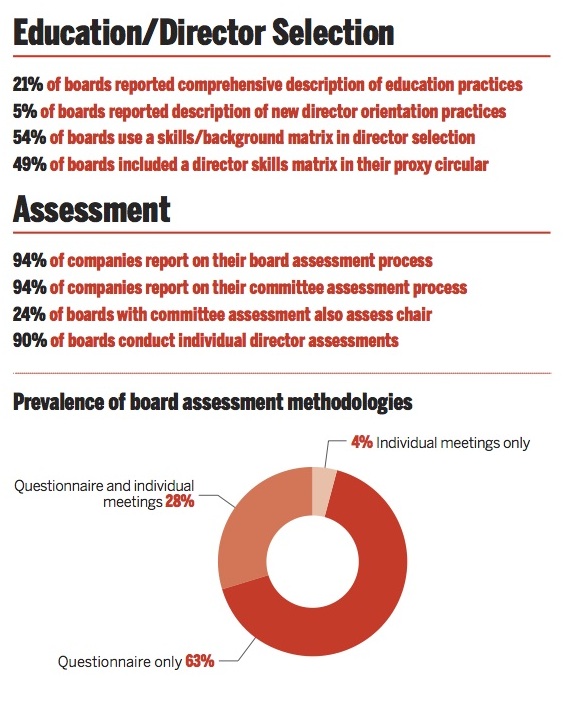
Formation des administrateurs par les entreprises
L’article « No director left behind » publié dans Listed Magazine mérite de s’y attarder. Il aborde un sujet intéressant : celui de la formation continue des administrateurs. Qu’en retenir ? Voici quelques morceaux choisis…
Au-delà de la conformité
A common misconception equates director education with securities manuals and compliance briefings. It’s much more than that. Gwyn Morgan says one of the key things he learned from his SNC experience is that directors should spend more time on culture and values. “You have to make sure there is inherent in the company a culture and a set of values that will inevitably have people blow the whistle if they think something is wrong.” The problem is that ethics and culture are not easy things to measure, weigh or teach. In fact, many director education programs focus on harder skills, such as legal duties, reading financial statements, running committees or enhancing performance and shy away from the more philosophical elements, such as culture or ethics.
Des exigences juridiques croissantes
Under Canadian securities regulations, issuing companies are required to disclose director continuing education practices in their management proxy circulars. If a board does not provide continuing education for its directors, companies are required to describe how the board ensures that directors maintain the skill and knowledge needed to meet their obligations.
Une formation générique ou spécifique ?
But that’s simply a starting point. While director orientation programs are great at giving a director his or her sea legs, they are often generic in nature, discussing issues from a macro perspective and often failing to drill down to the industry level, where a board’s attention needs to be focused. So while designations are a good start, directors and boards need to step it up. Lawyer Carol Hansell, a corporate governance expert at Hansell LLP in Toronto, says many independent directors are accomplished business people, but “don’t necessarily have the industry perspective or knowledge and have to be schooled up on it.” “The generic programs are good and important, but they are only a start.” Orientation programs are crucial for introducing industry-specific information to new directors
Le défi de l’agenda
Experts say one of the growing challenges in delivering director education is time. It’s a precious commodity. “Most companies are trying to schedule it,” says Korpach. “The challenge is how do you make time in a limited agenda?” (…) Hansell adds “there’s a lot of governance fatigue [at the board level]. When you talk about continuing education, directors think you are going to give them another lecture about governance. What directors are really looking for is industry-specific information, particularly in the areas of risk.”
Quel modèle pour la formation des dirigeants ?
Experts say the topics for education are limitless. A few years ago, International Financial Reporting Standards (IFRS) and accounting was the rage as regulators introduced new rules. Now, it’s things like executive compensation, foreign corruption and cybersecurity that are drawing the attention. The need is often driven by changes in laws and regulations, or even new court rulings, which touch on director liabilities or fiduciary duties. Education on business strategy also continues to remain strong. “Boards are starting to get more heavily involved in strategy,” says Chynoweth. “It’s about understanding what’s the difference between tactics and strategy.” He says directors often confuse the two. Education programs are also expanding beyond the traditional theoretical discussions around financial matters, strategy and risk to include more practical analysis. For example, site visits have grown in popularity, not just involving company operations, but extending to clients as well.
À la prochaine…
Ivan Tchotourian